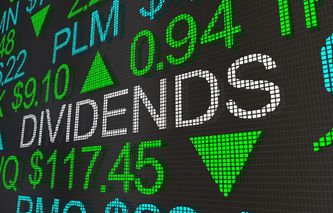The investing term day trading refers to individuals that buy and sell securities throughout the day, closing out their positions before the markets close. Trades include several standard securities, including stocks, options, and futures (currencies, commodities, interest rates).
The term day trading refers to individuals engaging in several techniques, all of which involve closing out their positions before the markets close. Also referred to as active traders, these individuals are frequently considered speculators. The speed of computers and the ability to conduct trades electronically allow individuals to day trade from the comforts of their homes.
Scalping – Holding a position in a security for a brief period of time; an arbitrage approach that allows traders to profit from bid-ask spreads.
Price Momentum – Looking for technical patterns that may indicate a security's price is about to move up or down quickly.
Range-Bound Trading – Watching for stocks that move past a resistance price, which can indicate it's about to break out and trade at higher prices in the immediate future.
News Playing – Monitoring the news for information that might cause a sudden increase or decrease in the market's perceived value of a company's stock.
Pros and Cons of Day Trading
- Potential for quick profits from short-term price movements.
- Flexibility to work from anywhere with an internet connection.
- Opportunity to actively manage and control your own investment decisions.
- Possibility of generating income on a daily basis.
- High risk and potential for substantial losses.
- Requires significant time and effort for market research and analysis.
- Psychological stress due to the fast-paced nature and constant decision-making.
- Transaction costs, including commissions and fees, can eat into profits.
Types of Day Traders
In the broadest generalization, individual and institutional are two main types of day traders.
Institutional Day Traders
Institutional day traders work for financial institutions like hedge funds, proprietary trading firms, or investment banks. They trade with the firm's capital and follow the trading strategies and guidelines set by the institution.
They often have access to advanced trading tools, research resources, and technology platforms their employers provide.
Institutional day traders use their access to greater resources and technology to capitalize on less risky day trades involving arbitrage opportunities and news events. Their resources allow them to react swiftly and exploit these opportunities before individual traders can react.
Individual Day Traders
Besides trading with other people’s capital, individual or solo day traders frequently use their own money to day trade. While most of them typically operate from home or their own trading offices, some solo day traders have access to a trading desk.
Because they spend a lot of money on commissions, solo day traders usually have a good relationship with a certain brokerage. This gives them access to resources to some degree, but they don’t have all the advantages that institutional day traders have.
This is why individual day traders have to rely on technical analysis, swing trades, and leverage to enhance their day trading activities and capitalize on small price movements.
Pattern Day Traders
While individual and institutional day traders operate within their own unique frameworks, it is essential to note that there is a specific category of day traders known as pattern day traders.
These day traders operate under regulatory requirements but also enjoy certain privileges and benefits that set them apart from other day traders.
Maintain a minimum margin account balance of $25,000 at all times
Execute four or more day trades within a rolling five business day period
Keep the number of day trades above 6% of the total trades in the margin account for the same five business day period
On the other hand, by being classified as a pattern day traders, these individuals get access to a higher level of leverage and can execute a greater number of trades compared to other types of day traders.
Day Trading Considerations
It is often said that as long as they have capital, anyone can become a successful day trader. While that is technically true, it is also true that most day traders lose money, so it's crucial to approach day trading with caution and consider the following factors before getting started.
Market Knowledge and Skills
Successful day traders possess a deep understanding of the markets they trade in. They spend significant time learning about different financial instruments, market trends, technical indicators, and trading strategies.
Developing the necessary knowledge and skills to make informed trading decisions can take plenty of time and effort, but they are essential for making successful trades and managing risks effectively. At the very least, beginner day traders need to know to use technical analysis tools and read charts to get started.
Individuals looking to become day traders have to be prepared for a steep learning curve and be committed to continuous learning and improvement to make it.
Risk of Loss
Due to the volatile nature of financial markets, combined with the fast-paced trading environment, most day traders end up losing money when day trading. This is why it is crucial to set stop-loss orders, determine position sizes, and manage leverage to control potential losses.
Without proper risk management, day traders can quickly deplete their capital.
Individuals wanting to become day traders must be ready for potential losses and only trade with risk capital they can afford to lose. Developing a disciplined approach to risk management can help them mitigate risks and increase the likelihood of long-term profitability.
Costs and Fees
It is easy for people who have never day traded before to overlook the costs associated with the frequent buying and selling of securities. Day traders often make more than a dozen trades per week, and each one of them comes with transaction costs such as commissions and fees.
At first glance, these costs look negligible, but they add up and can quickly eat into their profits, especially if they're trading with a small account.
Successful day traders carefully consider the costs and fees associated with their trading activities and factor them into their overall profitability calculations. This is why choosing a brokerage platform that offers competitive commission rates is an important consideration when becoming a day trader.
Time Commitment
Another important consideration that people who never day-traded easily overlook is how time-consuming day-trading can be.
Throughout trading days, successful day traders often spend hours actively monitoring the markets, analyzing price movements, identifying trading opportunities, and executing trades in real time. The fast-paced nature of day trading means they must be available and focused during market hours.
Becoming a day trader while keeping a full-time job or attending to other commitments that might require attention can be very challenging, making availability an essential consideration for those looking to start day trading.
Discipline and Emotional Control
The pressure of making quick decisions, managing losses, and handling market volatility can lead to stress, anxiety, and impulsive behavior. As a result, emotional control and discipline are vital to navigating the psychological challenges of day trading.
Successful day traders develop an emotional discipline that allows them to avoid impulsive trading decisions driven by fear or greed and maintain a rational mindset. They are able to maintain their risk management strategies and stay focused on their trading goals regardless of the most recent market fluctuations.
Being unable to resist the urge to overtrade can lead to increased transaction costs, reduced quality of trades, and ultimately lower profitability. By focusing on quality over quantity and exercising discipline in trade selection, day traders can mitigate these risks and increase their chances of success.
Capital Requirements
Having enough capital is essential for day traders to manage risk effectively and increase their chances of success. An adequate amount of capital is the capital that can allow traders to trade without emotion, enable them to withstand short-term market fluctuations, and let them use leverage to boost their earnings.
While the actual amount can vary depending on the trader’s goals, it is important to remember that trading is a risky endeavor, and traders lose money all the time. Those who want to become day traders must be ready to commit a significant amount of risk capital they can afford to lose.
Otherwise, they run the risk of depleting their capital and experiencing financial hardship that can severely impact their financial well-being.
Once these considerations are addressed, aspiring day traders can explore and implement various day trading strategies.
Day Trading Strategies
Day traders can take many different strategies and approaches to identify and execute profitable trades. Here are some of the most popular strategies used by day traders.
Scalping is a day trading strategy involving frequent trades to capture small price movements. Traders aim to profit from the bid-ask spread or the temporary imbalances in supply and demand.
Momentum trading is an approach that focuses on stocks or other assets that are experiencing significant price movements with high trading volumes. Traders enter trades in the direction of the prevailing trend, attempting to ride the momentum and exit before a reversal occurs.
Breakout trading involves traders monitoring support and resistance levels and looking for price breakouts above resistance or breakdowns below support. Once a breakout occurs, they enter positions in the direction of the breakout, anticipating a continuation of the trend.
Range trading is a strategy that involves identifying stocks or assets that are trading within a well-defined range. Traders take advantage of predictable price movements within the range, by buying near the support level and selling near the resistance level.
News-based trading is an approach where traders react to news announcements, earnings reports, economic data releases, or other significant events that can impact the markets. They seek to capitalize on the price volatility and sudden shifts in sentiment caused by such news.
Technical analysis relies on traders using various technical indicators, chart patterns, and trading signals to identify potential entry and exit points. It is an approach that involves studying historical price data, volume, and other indicators to predict future price movements.
Arbitrage involves traders exploiting price discrepancies between markets or exchanges by simultaneously buying and selling the same asset. This strategy requires quick execution and relies on the principle that prices will eventually converge.
Note that traders often combine multiple strategies and adapt them to suit their trading style and preferences. Developing a solid understanding of the chosen strategy, proper risk management, and continuous learning are key aspects of successful day trading.
Let's consider a day trading strategy example using the breakout trading approach.
In our scenario, a day trader identifies a stock that has been trading within a well-defined range between $50 and $55 for several days. The trader believes that if the stock breaks out above the resistance level at $55, it has the potential to continue its upward trend.
Once the stock breaks out above the resistance level of $55, the day trader enters a long position. Let's assume the breakout occurs at $56.
To manage risk, the day trader sets a stop-loss order at $54, representing a 3.6% risk from the entry point. If the stock's price drops to or below this level, the position will be automatically closed to limit potential losses.
The day trader sets a profit target at $60, representing a potential gain of 7.1% from the entry point. This target is based on the trader's analysis of the stock's potential upside momentum.
The risk-reward ratio for this trade is 1:2, as the potential reward (7.1%) is twice the potential risk (3.6%). The day trader ensures that the potential profit is at least twice the potential loss for a favorable risk-reward ratio.
As the trade progresses, the day trader monitors the stock's price movements. If the price reaches the profit target of $60, the trader closes the position to secure the profit. If the stock starts to show signs of reversing or hits the stop-loss level of $54, the trader exits the position to limit losses.
Cash vs. Margin Day Trading
Beyond using their own capital, in day trading, traders may also use borrowed funds to increase their trading power and execute larger positions. This method is known as margin trading, and it involves leveraging borrowed funds from a broker.
With margin trading, traders can control positions that exceed their available capital, as they essentially borrow money to supplement their buying power. While margin trading can amplify potential profits, it carries higher risks, as losses can exceed the trader's initial investment.
Let's explore the differences between cash and margin day trading.
Cash Day Trading
Account type – In a cash account, traders can only use the funds available in their account to make trades. They are limited to the cash balance in their account and cannot use borrowed money or leverage.
Buying power – The buying power in a cash account is restricted to the amount of cash available. Traders can only trade with the funds they have deposited and settled in their account.
Pattern day trader rule – Cash accounts are not subject to the pattern day trader (PDT) rule. This rule applies to margin accounts and requires traders to maintain a minimum account balance of $25,000 to execute more than three-day trades within a rolling five-day period.
Risk management – With cash accounts, traders have a lower risk of incurring losses beyond their account balance since they cannot use margin or leverage. They are limited to trading with the capital they have deposited.
Margin Day Trading
Account type – Margin accounts allow traders to borrow funds from their brokerage to increase their buying power. Traders can trade with both their own funds and borrowed funds.
Buying power – Margin accounts provide additional buying power, allowing traders to potentially trade larger positions than their account balance. The exact amount of buying power depends on the margin requirements set by the broker and the trader's account equity.
Margin requirements – Margin accounts require traders to maintain a certain level of equity in their account relative to their open positions. This is known as the margin requirement, and it is typically a percentage of the total position value.
Leverage – Margin accounts offer leverage, which allows traders to control larger positions with a smaller amount of capital. While leverage can amplify potential profits, it also increases the risk of larger losses.
PDT rule – Traders must maintain a minimum account balance of $25,000 to execute more than four day trades within a rolling five-day period. Failure to meet the PDT rule requirements can lead to restrictions on trading activities.
Day Trading Buying Power
Overall, the main difference between cash and margin day traders is the buying power that each type of trader has access to.
Cash day traders are limited to trading with the funds available in their accounts. They cannot use borrowed money or leverage, and their buying power is restricted to the cash balance they have deposited and settled.
Margin day traders, on the other hand, can borrow funds from their brokerage, increasing their buying power. They can trade with both their own funds and borrowed funds, allowing them to potentially execute larger positions.
Additionally, this increase in buying power gives them the advantage of diversifying their portfolio by taking multiple positions across different securities simultaneously. They can also take advantage of market opportunities that require larger capital, such as participating in initial public offerings (IPOs) or engaging in high-volume trading.
Moreover, margin trading can provide the flexibility to implement sophisticated trading strategies, including short-selling and leveraging market volatility for potentially higher returns.
Conversely, margin day traders are exposed to additional risks compared to cash day traders. Since margin traders can trade with borrowed funds, any losses incurred are not limited to their own capital but can exceed them, leading to substantial financial setbacks.
Margin trading also entails the risk of margin calls, where the brokerage may require additional funds to be deposited if the value of the positions declines.
Ultimately, while higher buying power can offer increased opportunities and potential for larger profits in day trading, it must be used cautiously as the risks involved with margin trading are too significant to overlook.

.jpg)




.jpg)